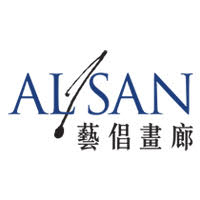Pawit Mahasarinand Dismissed as Director of Bangkok Art and Culture Centre
By ArtAsiaPacific

PAWIT MAHASARINAND
On September 24, Pawit Mahasarinand issued a statement addressed to members of the press and officers of the Bangkok Metropolitan Administration (BMA), claiming that the board of directors of the Bangkok Art and Culture Centre (BACC) had unjustly terminated his role as director of the institution. The board cited unsatisfactory work performance as the reason for his dismissal in an internal memo sent to Pawit on August 31. Pawit then requested an official performance evaluation report, but his demand went unanswered. In his statement, Pawit also alleges that two board members contacted him on September 4, suggesting that he resign and receive “special compensation” instead. Pawit believes his dismissal is politically motivated, and stems from his public opposition to several decisions made by the BMA, which oversees the BACC, regarding the Centre.
In May 2018, Aswin Kwanmuang, a member of the BMA, had proposed that the BMA assume direct control of the BACC, which at the time was managed by a foundation contracted by the BMA. As part of this transition, the BACC would also be transformed into a coworking space. Pawit’s public objection against the repurposing of the BACC and the restructuring of its management was supported by many of Thailand’s artists and patrons, and propelled a petition that accumulated more than 25,000 signatures. While BMA rescinded its plans, it also withdrew its annual funding of THB 40 million (USD 1.3 million) for the BACC. The restrictive budget eventually led the BACC to cut back on its operation hours and the number of exhibitions that it presented. On September 26, 2018, Pawit held a press conference, decrying the BMA’s defunding of the BACC. “Back when we had an elected government, the city approved funding. But now it doesn’t,” he said.
While Pawit claims that it is these incidents that led the BACC to terminate his contract, which was meant to remain in effect until 2022, Amnuay Rattanaburi, head of the BMA’s contemporary art subdivision, has reiterated that the dismissal was performance related, and was entirely the BACC board’s decision, unrelated to the BMA.
Pawit told AAP that while he agrees it was ultimately the BACC board’s decision, he believes the newly appointed board has “more BMA presence than the previous ones,” and that one board member told him informally that the board was dissatisfied with his comments about BMA.
Regarding the future of BACC, Pawit hopes that it maintains its current “multi-disciplinary inclusivity” as a “public art centre and not a museum or art gallery,” which he says has been his emphasis. He will helm the BACC until September 30.
To read more of ArtAsiaPacific’s articles, visit our Digital Library.
.jpg)






